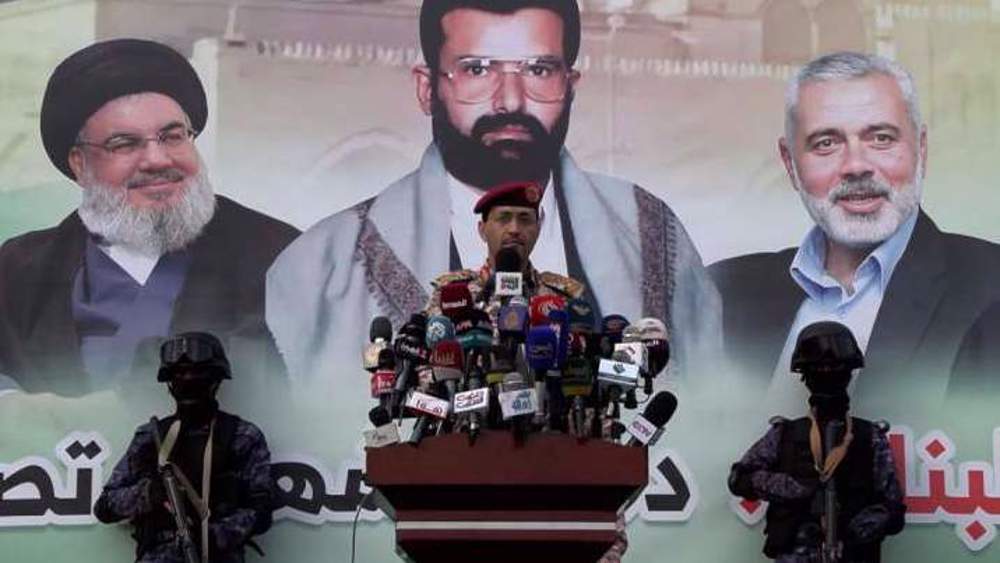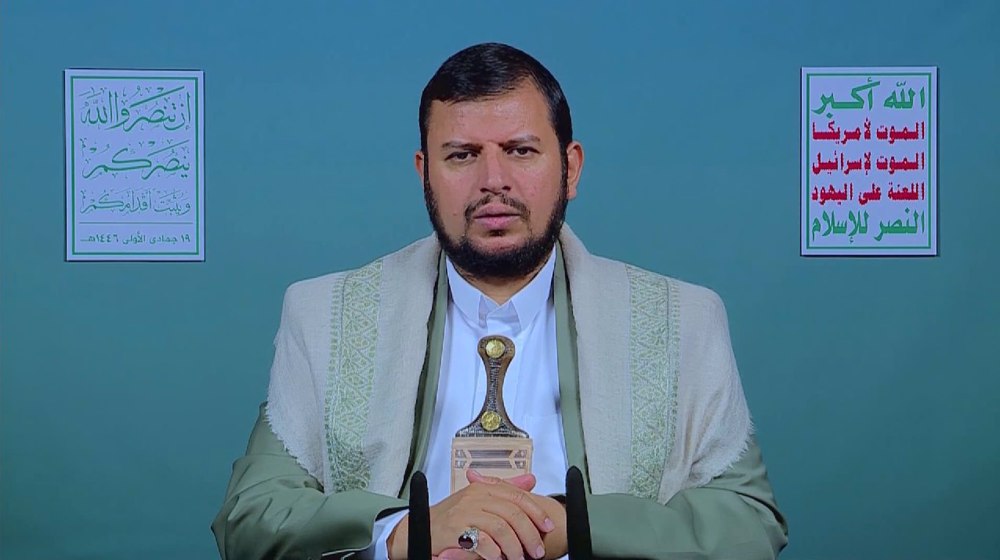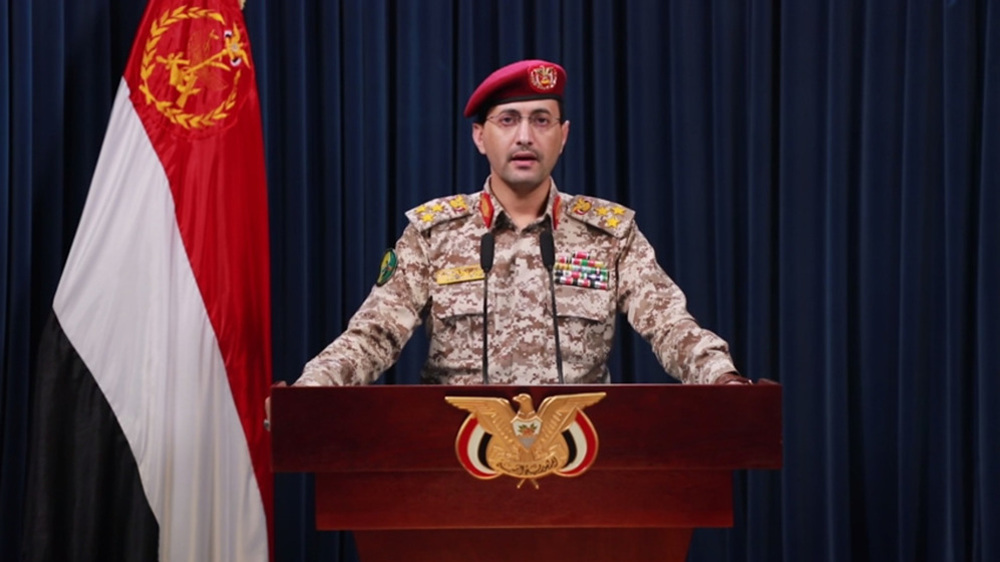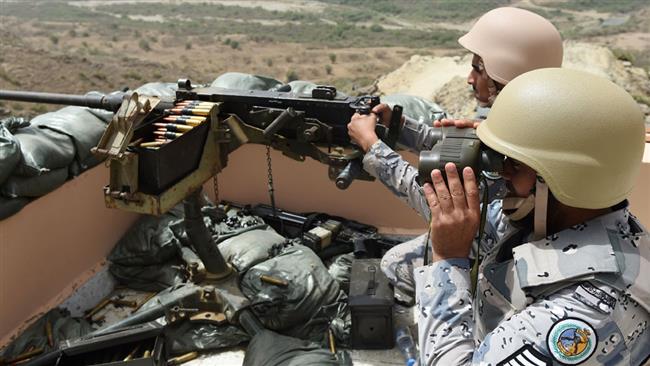Yemeni sharpshooters kill 2 Saudi troops in Jizan
Two Saudi soldiers have been killed when the Yemeni army and fighters from the allied Popular Committees launched an attack against the kingdom’s southwestern border region of Jizan in retaliation for the Riyadh regime’s campaign against the impoverished Arab country.
An unnamed military source, speaking on condition of anonymity, told Arabic-language al-Masirah television network that Yemeni snipers fatally wounded the soldiers in the Saudi military outpost of al-Maridhah on Tuesday, a day after sharpshooters killed another Saudi soldier in al-Zaqilah military base in the same region.
The source added that the artillery of the national forces also shelled gatherings of Saudi forces in several military bases and outposts, including al-Sharhawi and Nashaw, across the region’s border areas. Furthermore, Yemeni forces fired Katyusha rockets against gatherings of Saudi troops and military hardware and vehicles in the southern region of Nagran.
Reports say the attacks inflicted heavy damage upon the Saudi war machine in the two neighboring regions.
Back in April, Arabic-language Yemen Watch news agency reported that in the first quarter of this year, Yemeni forces had killed a total of 119 Saudi soldiers. Most of the operations were conducted in Jizan, where a total of 74 Saudi soldiers were slain. Thirty-five and 10 other Saudi troops were killed in Najran and Asir regions, respectively.
A report by Reuters published in April last year revealed that at least 400 Saudi soldiers had been killed in the cross-border fire since the start of the Saudi campaign in March 2015. Riyadh has maintained a policy of ambiguity regarding its casualties in the war on Yemen. Senior military officials have said that they would not release such information until after the campaign.

Devastating war on Yemen
Over the past two and a half years, Yemen has been under heavy airstrikes by Saudi Arabia’s warplanes as part of a brutal war against the Arabian Peninsula country in an attempt to crush the popular Houthi Ansarullah movement and reinstall the former president, Abd Rabbuh Mansur Hadi, a staunch ally of Riyadh. More than 12,000 people have been killed since the onset of the campaign, and much of the country's infrastructure, including hospitals, schools and factories, has been ravaged.
The Saudi war has also triggered a deadly cholera epidemic across Yemen.
On August 14, the World Health Organization announced that a total of 503,484 cases, suspected to be infected with cholera, and 1,975 deaths, attributable to the outbreak, had been documented in Yemen since late April. The world body has on several occasions warned about the growing cholera epidemic and a looming famine in the impoverished country.

The UN has already announced that the Saudi war had left some 17 million Yemenis hungry, nearly seven million facing famine, and about 16 million almost without access to water or sanitation.
On Thursday, the Foreign Policy magazine said it had obtained a new confidential draft report by UN Secretary General Antonio Guterres, saying that Saudi airstrikes had killed 502 Yemeni children and injured 838 others since 2015.
The same report by the UN also revealed that the Saudi war, despite Riyadh’s overwhelming military superiority, had failed since it was “no closer” to achieving its declared objective.
The United States and Britain have been providing the bulk of the military ordnance used by Saudi Arabia in the war. London has licensed 3.3 billion pounds' worth of weapons since the beginning of the war.
Washington also sealed a multibillion dollars arms deal with Riyadh when US President Donald Trump made his maiden visit abroad in May. The deal, which is worth $350 billion over 10 years and $110 billion that will take effect immediately, was hailed by the White House as a significant expansion of the security relationship between the two countries.
Israel launches air strikes on Syria-Lebanon border crossing
Russia: Comprehensive deal with Iran will include defense, security ties
VIDEO | Israeli embassy shooting in Jordan leaves gunman dead, 3 police injured
VIDEO | Paris march in support of Palestine women
VIDEO | ICC issues arrest warrants for Israeli prime minister, ousted regime war minister
120 Palestinians perish as Israeli war machine keeps ravaging Gaza
VIDEO | Struggles of Palestinian women amidst war, displacement
VIDEO | Hezbollah rains attack drones down on elite Israeli brigade
















 This makes it easy to access the Press TV website
This makes it easy to access the Press TV website